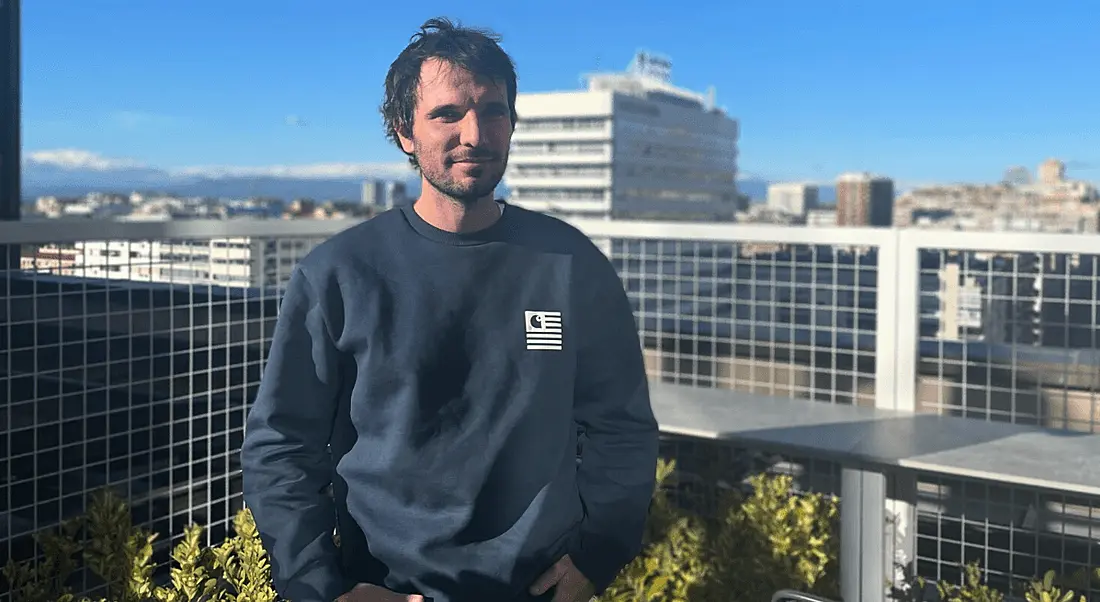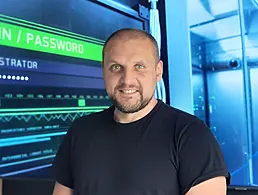Personio’s Alessandro Broggio speaks to SiliconRepublic.com about his day-to-day as a people data analyst and what he enjoys most about working in analytics.
Alessandro Broggio is a people data analyst at HR software provider Personio. His main duties include working with large and complex datasets, especially for the HR and finance domain, and supporting the extract, transform and load (ETL) data integration process.
Alongside these duties, he especially enjoys data transformation and data modelling.
‘Every data project you work on is a journey, and the flow of data throughout the process is so fascinating’
– ALESSANDRO BROGGIO
If there is such a thing, can you describe a typical day in the job?
While we have a flexible working policy at Personio, I travel into the office most days, as I love to interact with my colleagues in person. After arriving at around 8.30am and having my double espresso (please don’t try speaking to me before then), I catch up on Slack and emails.
After this, I begin preparing Jira tickets for any data pipeline issues which need investigating that day, ahead of our daily stand-up meeting. During our stand-up meeting, we discuss our current tasks in case we need additional support from our team, which we like to call deep dive topics, which we then get to work on during the afternoon. I usually dip in and out of meetings and work until around 6pm, so I always ensure I make time for a quick lunch time walk with Lava, the office dog and mascot!
What types of analytics projects do you work on?
I typically work on people analytics projects that contain personal identifiable information (PII) data and create analytics dashboards to help our people and management teams understand what’s going on in the business and make data-driven decisions. That data could include headcount growth, turnover of employees or absence rates, for instance.
One project I have been working on recently is the talent acquisition performance project, as hiring has been a big focus for Personio. This data project allows us to adjust our hiring processes to ensure they support our hiring goals, such as identifying bottlenecks or understanding which job application channels are performing best.
I am passionate about working on these types of projects, as my colleagues and I are able to see first-hand how our work is directly impacting the growth of Personio.
What skills do you use on a daily basis?
In terms of core technical skills, strong SQL skills are important for storing, manipulating and retrieving data. We also use business intelligence tools such as Tableau, which help us turn business information into actionable insight, allowing us to inform our business decisions.
However, besides these, I believe the most important skill is communication. We must communicate effectively with our stakeholders, as often their requests are vague and understanding their needs and expectations is key to delivering the right results. We get together as an internal team, to explain what is possible and what is not, and collectively decide on the best course of action.
Also, at Personio we have the opportunity to work closely with data engineers and learn about new technologies and technical skills, for example DBT (Data Build Tool) and cloud computing. Being able to have a holistic understanding of data pipelines and how we can work together to best support end users is one of the most fascinating aspects of my job.
What are the hardest parts of working in analytics?
We have experienced a hyper-growth phase at Personio and we are now experiencing a change in mentality from a start-up to a more structured business. This means we are currently tackling the issue of data quality. The data structures we have traditionally used like Excel and Google Sheets are great for short analysis, however, they should no longer be used as the data storage source. Developing our data quality as we continue to mature and grow is a really interesting and important job, although definitely a challenge.
Do you have any productivity tips that help you through the day?
My biggest tip for someone who may be struggling with productivity is to work in two-week sprints. My team and I have found that this works perfectly for us, and it’s pretty simple really. We discuss which projects must form our priority for the next two weeks and put all of our focus onto this – except in the case of emergencies, of course. This is great for improving productivity as it allows us to focus on a set number of tasks rather than getting distracted by new ones.
What skills and tools are you using to communicate daily with your colleagues?
At Personio, we love using Slack as our teams are spread across seven European offices, and this makes it so easy to stay connected. And of course, the coffee machine serves as a hub of communication in the office!
How has this role changed as the analytics sector has grown and evolved?
My role, and indeed my skillset, has developed over time as the data I work with grows with the company. My role is now fully embedded into the wider analytics team, which has been great for my personal development and data skills.
What do you enjoy most about working in analytics?
Every data project you work on is a journey, and the flow of data throughout the process is so fascinating. Of course, stakeholders only see the final data product, but I really love building the pipeline and seeing how the whole process helps to answer insightful questions.
At Personio, I feel empowered to continually ask questions and work in an agile environment, to continually advance my expertise and truly make an impact. There are unlimited interesting, large-scale problems to solve and challenges to tackle.
What advice would you give to someone who wants to work in analytics?
If you are passionate about starting a career in analytics like I was, I would encourage you to think about something in your life that you would love to have some answers to. Then you can develop your data mining skills from there.
For example, I play in a fantasy football league with my friends, but I wanted to understand how to make sure I was picking the best players when I don’t really follow the sport. I downloaded datasets on the internet and transformed them in order to answer my question, using the insight from what the data tells me. I am still yet to win a championship, but I always come second!
10 things you need to know direct to your inbox every weekday. Sign up for the Daily Brief, Silicon Republic’s digest of essential sci-tech news.




